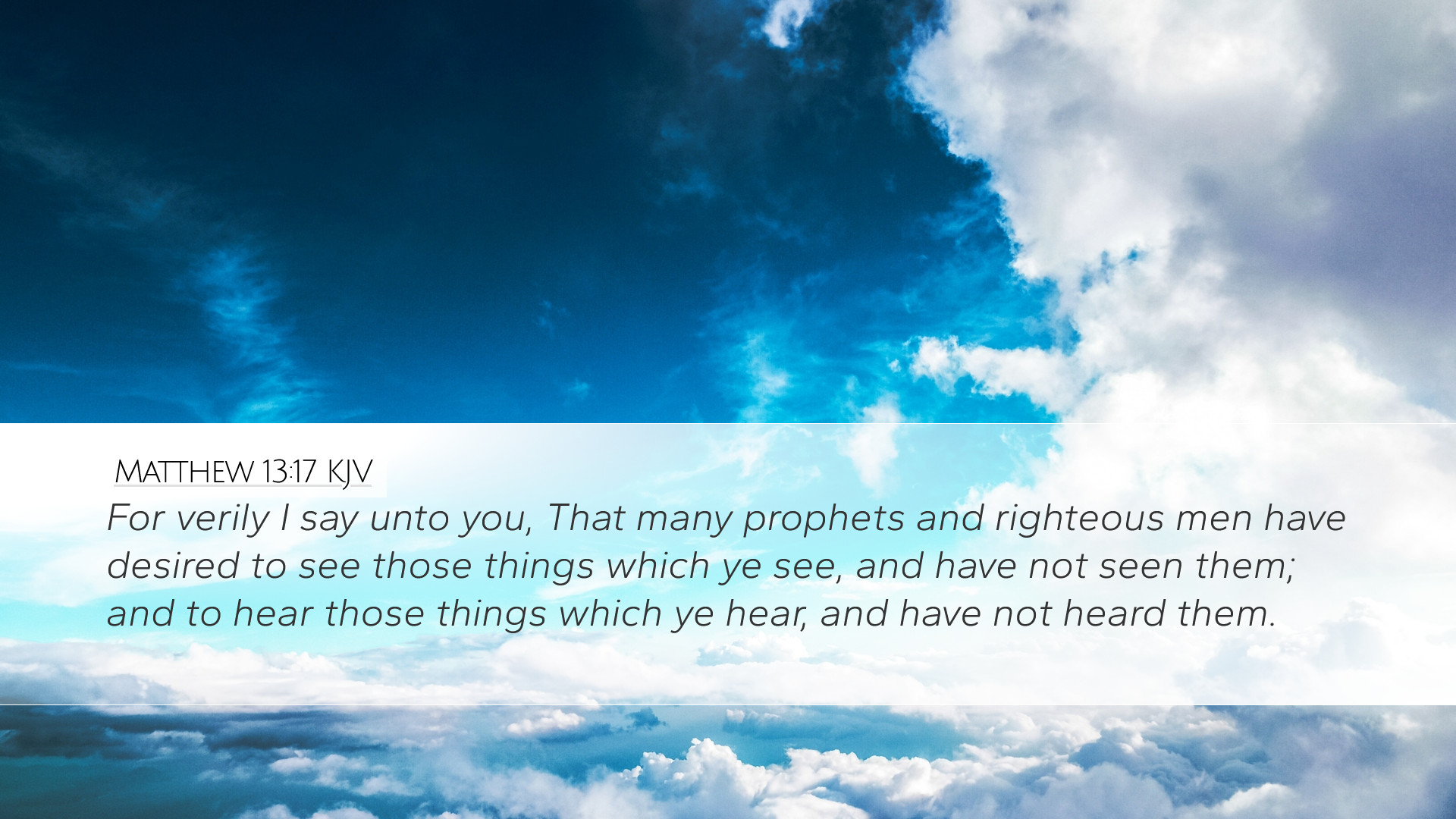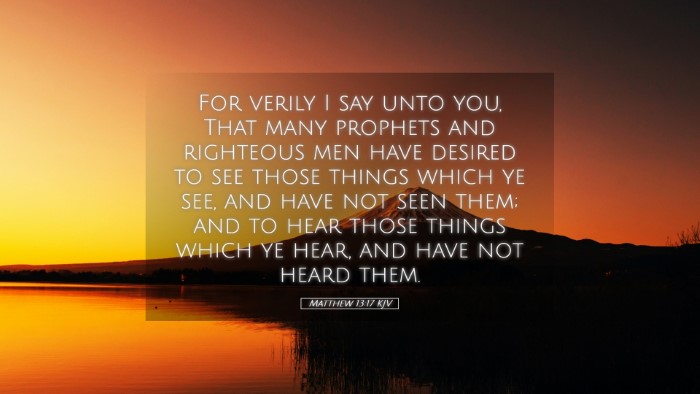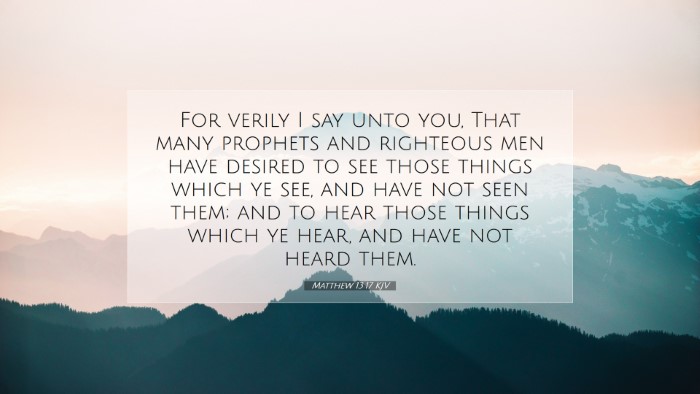Commentary on Matthew 13:17
Matthew 13:17 states: "For verily I say unto you, That many prophets and righteous men have desired to see those things which ye see, and have not seen them; and to hear those things which ye hear, and have not heard them." This verse is an integral part of Jesus' teachings about the kingdom of heaven and highlights the privilege of His disciples in understanding the divine mysteries.
Introduction
The context of Matthew 13 is vital for grasping the significance of verse 17. This chapter contains several parables, including the parable of the sower, the tares, and the mustard seed, all of which illustrate different aspects of the kingdom. Jesus' statement in verse 17 serves to affirm the unique role of His disciples and the advantages they possess in receiving revelation from God.
Insights from Public Domain Commentaries
Matthew Henry
Matthew Henry emphasizes the blessedness of the hearers of Christ's teachings. He notes that "the prophets and righteous men" mentioned in the verse represent those of the Old Testament who yearned for the coming of the Messiah and the establishment of His kingdom. They longed to witness the fulfillment of God's promises but lived in a time when their understanding was limited.
Henry articulates the profound privilege of the disciples, who, through the incarnation of Christ, were able to witness and hear the very truths that had once only been a distant hope for others. This privilege calls for gratitude and recognition of the revelatory work of the Holy Spirit that facilitates this understanding.
Albert Barnes
Albert Barnes elaborates on the idea that the phrase "many prophets and righteous men" signifies the faithful throughout biblical history who sought God and His truths. Barnes highlights the fact that these individuals, despite their righteousness, did not obtain what the disciples had been granted: intimate access to the teachings of Christ. He points out that righteous individuals like Abraham and David desired to see Christ's day, but did not have the opportunity to witness the reality of His ministry.
Barnes underscores that the fullness of revelation is found in Christ. Hence, the disciples should recognize the extraordinary blessing of their circumstances. "They had the privilege of seeing and hearing the very truths that prophets had longed for, making them participants in a divine unfolding that the ancients could only dream about."
Adam Clarke
Adam Clarke provides a nuanced understanding of this verse as he refers to the unfulfilled longings of the Old Testament saints. He comments on the depth of desire these individuals held - a desire rooted in divine hope for redemption. Clarke points out that this longing was accompanied by faith, which sustained them through their lives as they anticipated the coming Messiah.
Clarke also notes that Jesus' statement highlights the transition from the old covenant to the new. The disciples are experiencing the culmination of God's redemptive plan, revealing a foundational truth of Christianity: "to whom much is given, much is required." Therein lies a call to discipleship and active faithfulness.
Theological Implications
The theological implications of Matthew 13:17 are profound. Firstly, it emphasizes the continuity of God’s salvific plan throughout history, bridging the old and new covenants. The verse illustrates that the salvation narrative is anchored in historical longing, fulfilled in Christ, which comes with the responsibility to steward this revelation wisely.
Secondly, this verse serves as a call to appreciation for the nature of divine revelation. It invites scholars and theologians alike to reflect on the privilege they have, both in historical context and in contemporary faith. The yearning of the saints becomes a template for our own longing for greater depths of God’s truth.
Conclusion
In conclusion, Matthew 13:17 serves as a reminder of the unique position of the disciples in the narrative of redemption. It encapsulates the tension between desire and fulfillment, longing and realization, and provides an opportunity for believers today to reflect on their own engagement with the teachings of Christ. Understanding this text offers profound insights into the nature of revelation, the continuity of God's plan, and the blessings bestowed upon those who follow Christ.
As pastors, students, and theologians study this passage, let it prompt a renewed commitment to cultivate a deep relationship with God’s Word, acknowledging both the privilege and responsibility that comes with it.


